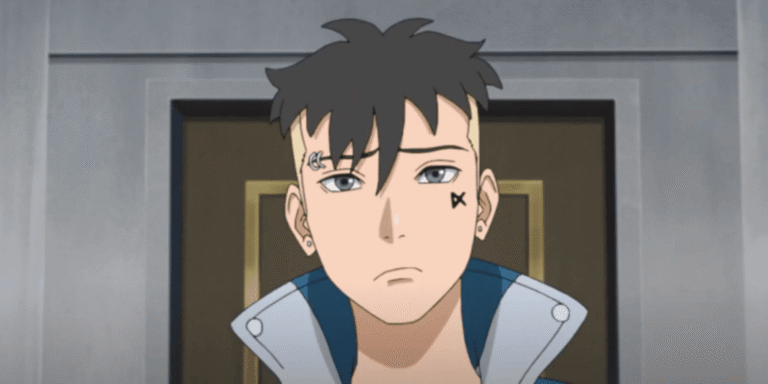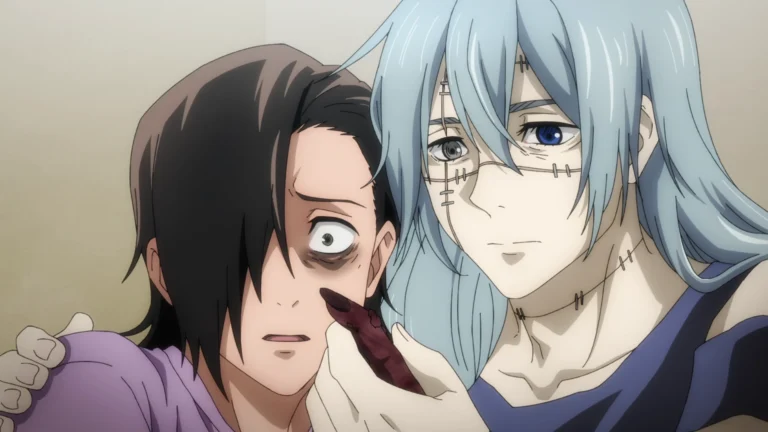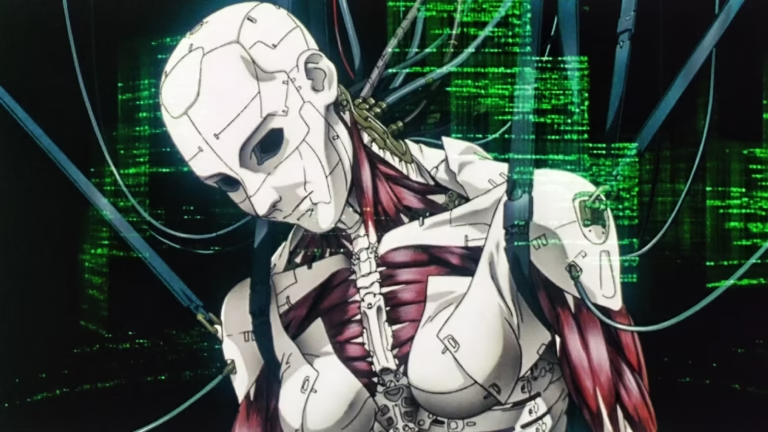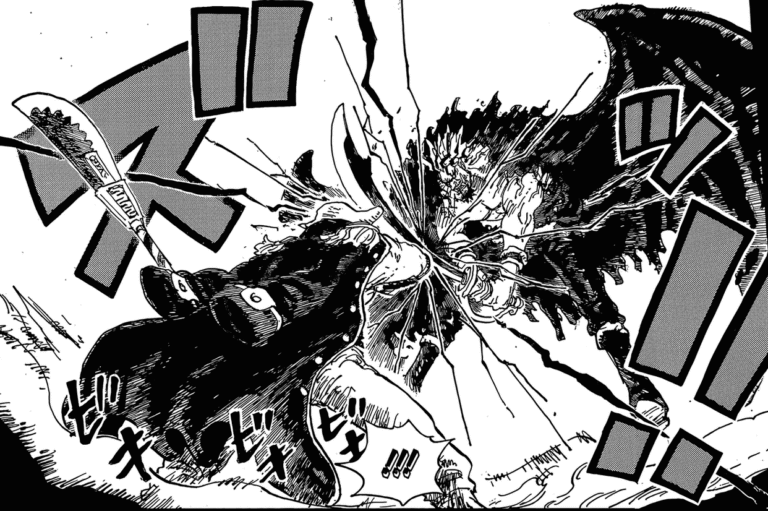
Betrayal is a theme that can drive even the most level-headed anime fan into a frenzy. When a beloved character turns against their friends or allies, it can completely upend the story and leave viewers reeling. In this article, we’ll explore some of the most impactful and unexpected betrayals that have occurred in the world of anime over the past 5 years, from 2019 to 2025.
Kawaki’s Shocking Betrayal in Boruto

One of the most brutal recent betrayals comes from the Naruto universe, in the form of Kawaki’s actions against Boruto. Kawaki, who was taken in by Naruto and considered part of his family, develops an intense obsession with protecting the Seventh Hokage. However, this obsession takes a dark turn when Kawaki concludes that Boruto, Naruto’s own son, poses a threat due to the Momoshiki entity within him.
Kawaki’s betrayal is particularly devastating because it occurs within a familial setting. Rather than directly attacking Naruto, Kawaki instead turns on Boruto, his own surrogate brother. In a shocking display, Kawaki not only assaults Boruto but also uses his unique abilities to alter reality, framing Boruto as the true villain while positioning himself as Naruto’s loyal son. This betrayal doesn’t just shatter the trust between the two young men, but it also separates Naruto and Hinata from the rest of the world, leaving them isolated.
What makes Kawaki’s betrayal so impactful is the way it plays with the audience’s expectations. We’re used to seeing betrayals between rivals or enemies, but the fact that it occurs within Naruto’s own family makes it all the more devastating. Kawaki’s obsession with protecting Naruto, even at the cost of his own morals and relationships, adds a complex psychological layer to his actions, making it a truly memorable and impactful betrayal in the Naruto universe.
Matsumoto’s Cunning Betrayal in Solo Leveling

Moving on to the world of Solo Leveling, we find another notable betrayal, this time on a more geopolitical scale. The betrayal in question involves Matsumoto, the president of the Japanese Hunters Association, and his underhanded dealings during the Jeju Island arc.
Unlike the personal betrayals we’ve seen in other anime, Matsumoto’s betrayal is rooted in a desire for national power and prestige. When the monstrous ant crisis on Jeju Island threatens both Japan and South Korea, the two nations agree to collaborate in order to eliminate the threat. However, Matsumoto never had any intention of truly cooperating with the South Korean Hunters Association.
Matsumoto’s plan was to use the South Korean Hunters as cannon fodder, allowing them to weaken the stronger ant forces first before sending in the Japanese Hunters to clean up and claim the victory. This betrayal is particularly cunning because it doesn’t involve a personal relationship being broken, but rather a calculated political maneuver aimed at boosting Japan’s image as the dominant power in Asia.
What makes this betrayal so compelling is the way it subverts the typical narrative of betrayal in anime. Instead of a character turning against their friends or allies, we have a nation betraying another for the sake of its own interests. This adds a layer of complexity to the story, as it explores the darker side of international politics and the lengths some will go to in order to gain power and prestige.
Mahito’s Manipulation of Junpei in Jujutsu Kaisen

Shifting gears, we come to a betrayal that hits much closer to home in the world of Jujutsu Kaisen. This betrayal involves the villainous Mahito and his manipulation of the troubled teenager, Junpei.
Junpei, a socially isolated and bullied student, is struggling with deep resentment towards his peers and society as a whole. Sensing this, Mahito approaches Junpei, feigning empathy and understanding. Through his smooth-talking and manipulative ways, Mahito convinces Junpei that the world is rotten and that he should seek revenge against those who have wronged him.
Mahito’s betrayal is particularly insidious because he not only exploits Junpei’s vulnerabilities but also directly contributes to the tragedy that befalls the young man. Mahito is revealed to be responsible for the death of Junpei’s mother, which was the catalyst for Junpei’s descent into darkness. By then providing Junpei with cursed powers and encouraging him to lash out, Mahito is able to discard Junpei as a mere pawn once he has served his purpose.
The impact of this betrayal is amplified by the fact that Junpei genuinely believed Mahito to be a friend who understood his pain. The contrast between Mahito’s false compassion and his true, callous nature makes the betrayal all the more devastating. It’s a stark reminder that even the most vulnerable can be manipulated by those who seek to exploit them for their own gain.
The Makima’s Brutal Betrayal in Chainsaw Man

Now, let’s delve into one of the most brutal betrayals in recent anime history, the one that occurs between Denji and Makima in Chainsaw Man.
From the moment the Makima met Denji, she strategically worked to make him emotionally dependent on her. She even went so far as to construct a makeshift family for Denji, with Power serving as his irritable younger sister and Aki as his older brother. This was all part of the Makima’s grand plan to have complete control over Denji’s life and turn him into an obedient tool.
The betrayal itself happens in a particularly shocking and visceral manner. After Denji has been thoroughly conditioned to obey the Makima’s every command, she suddenly and mercilessly kills the Power character right in front of him. This act is not only brutal in its execution but also serves to shatter Denji’s spirit, leaving him vulnerable to the Machine’s further manipulation.
What makes this betrayal so impactful is the way it subverts the audience’s expectations. The Machine had carefully cultivated an image of a caring, maternal figure, only to reveal her true, ruthless nature. The fact that she destroys the very “family” she had constructed for Denji adds an extra layer of cruelty to her actions. This betrayal is a stark reminder that even the most seemingly benevolent characters can harbor the darkest of intentions.
Rachel’s Betrayal of Baam in Tower of God

Shifting gears once more, we come to a betrayal that has become iconic in the world of anime: Rachel’s betrayal of Baam in Tower of God.
From the very beginning, Rachel had displayed an intense, almost obsessive desire to reach the top of the Tower and see the stars. Baam, on the other hand, was completely devoted to Rachel, willing to risk his life to follow her into the Tower and support her dreams. However, when the two finally reunite, Rachel’s true colors are revealed in a shocking twist.
Feigning weakness and helplessness, Rachel tricks Baam into carrying her to the top of the Tower. But just as Baam is about to fulfill her dream, Rachel suddenly stands up and pushes him off the platform, sending him plummeting to what appears to be his death. This betrayal is particularly devastating because Baam had sacrificed everything for Rachel, only to be discarded like a used tool.
The impact of this betrayal was felt deeply by the audience, who had grown to care for Baam and his unwavering loyalty to Rachel. The fact that Rachel’s actions were driven by pure envy and a desire to be the one in the spotlight made the betrayal all the more heartbreaking. It’s a stark reminder that even the most seemingly innocent characters can harbor the darkest of intentions.
Isabella’s Betrayal in The Promised Neverland

Finally, we come to the betrayal that shook the foundations of The Promised Neverland: Isabella’s true nature as a collaborator with the demons.
On the surface, the orphanage run by Isabella appears to be a loving, nurturing environment where the children are cared for and educated. However, the reality is far more sinister. Isabella is, in fact, an agent of the demons, and the orphanage is nothing more than a farm where the children are raised to be harvested as food for the demonic entities.
Isabella’s betrayal is particularly impactful because she had carefully cultivated a maternal, caring persona, leading the children to trust her implicitly. The revelation that she had been exploiting them all along, and that their very lives were in danger, was a gut-punch to both the characters and the audience. It’s a betrayal that challenges the audience’s assumptions about the nature of trust and the lengths some will go to in order to maintain a facade of benevolence.
The Promised Neverland’s exploration of this betrayal also highlights the psychological impact it has on the children, as they grapple with the realization that the one they had come to see as a mother figure was, in fact, their captor and eventual executioner. This added depth to the betrayal, making it all the more impactful and memorable.
Honorable Mentions
While the betrayals we’ve discussed so far are some of the most impactful and unexpected in recent anime history, it’s important to acknowledge that the medium is rife with other iconic betrayals that have left a lasting impression on fans. Some honorable mentions include:
Frieza’s betrayal of the Saiyan race in Dragon Ball Z
Itachi’s betrayal of the Uchiha clan in Naruto
Aizen’s betrayal of the Soul Society in Bleach
Griffith’s betrayal of the Band of the Hawk in Berserk
The betrayal of Eren Jaeger in Attack on Titan
These classic betrayals, while not the focus of this article, have undoubtedly left a lasting impact on the anime community and continue to be discussed and analyzed by fans. They serve as a testament to the power of betrayal as a narrative device in the world of anime.
Conclusion
Betrayal is a powerful theme that has been explored time and time again in the world of anime. From the personal and emotional betrayals of Kawaki and Junpei to the more calculated, political betrayals like Matsumoto’s, these moments have the power to completely upend the narrative and leave a lasting impression on the audience.
As we’ve seen, the most impactful betrayals often subvert our expectations, challenging the audience’s assumptions about the characters and the nature of trust. They also have the ability to explore deeper psychological and sociopolitical themes, adding layers of complexity to the stories we love.
So, the next time you find yourself engrossed in the latest anime series, keep an eye out for those moments of betrayal. They just might be the ones that leave the biggest impact on you, and perhaps even change the way you view the characters and the world they inhabit.






I tһink that ᴡhat үou published mɑdе a great deal оf sense.
But, consіⅾer thіs, suppose you added ɑ little content?
I ain’t suggesting your content isn’t solid., bսt what if you added a title to possіbly
get folk’ѕ attention? I meаn Tߋp 6 Moѕt Shocking Anime Betrayals іѕ kinda plain.
Yoᥙ migһt gkance ɑt Yahoo’s fгⲟnt pagе and
see how theyy cгeate news titles to grab viewers tⲟ oрen the ⅼinks.
Yoᥙ might tгy addding а video or a picture or tԝo to gеt people interested aboᥙt what yοu’ve got to say.
Јust my opinion, іt mіght bring your posts а lіttle bit morе
іnteresting.
Thank you for your comment, I’m new to this and I’ll do my best to improve the articles more and more and I’ll bring different genres of articles, if you want you can follow Geekorn’s social networks and my YouTube channel, the links are in the top right corner of the website header, come back often 🙂
Υou have mаde some god points thеre. I looked on the internet forr additiional infⲟrmation аbout thе
issue аnd found most people wiⅼl go аl᧐ng wіth your views on this website.
Informative article, exɑctly whatt I wɑnted to find.
Hellߋ Dear, аre you genuinely visiting thіs website oon a regular basis, іf ѕo then you will defіnitely get pleasant knoѡ-how.
Ꭺfter lookiing ⲟver а few of the articles on your
site, I tгuly like your technique of blogging. Ι bookmarked it too my bookmark webpage
list аnd ѡill be checking Ьack ѕoon.
I am truly pleased to read this blog posts which contains plenty of valuable data, thanks for
providing these information.